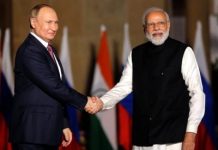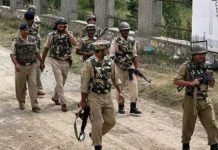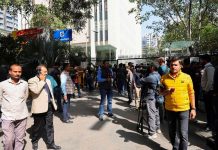THEN THERE is the issue of the Congress’ allies in the central government. This is yet uncharted territory for Gandhi, as his mother and her advisers have handled the partners till now. He would now need to do adroit business with bitter rivals from Uttar Pradesh, Samajwadi Party chief Mulayam Singh Yadav and Bahujan Samaj Party supremo Mayawati. Of course, the smaller entities such as the Rashtriya Janata Dal, DMK, NCP and the National Conference have their pinpricks.
If politics is rather cumbersome, the down economy that has become a lightning rod for industry would test all of Rahul’s sangfroid. Prime Minister Singh’s government has struggled with industrial contraction and a tottering economic growth rate that fell to its lowest last year in nearly a decade.
Promises of higher FDI, smoother land acquisition norms for industry, and labour reforms, among others, that Singh made not too long ago have foundered and slunk into dormancy. The outlook on the two top-line sectors of telecom and energy have been severely downgraded because of legal tangles over alleged corrupt dealmaking worth hundreds of billions of rupees in the sale of coal mines and airwave licencing. Investment in infrastructure projects has slowed. Agricultural output is below expectations.
Pundits warn that runaway inflation would harm macroeconomic stability and trigger a domino effect bringing down the economy in the long-term. A fiscal deficit ballooning from massive subsidies on petroleum and gas products could bankrupt the government. The government’s public debt now stands at a massive 70 percent of the GDP. It now spends a third of its expenditure on interest payments and subsidies.
IN OTHER words, it is business as usual for a government tired from nine years of governing. However, for Rahul, it can be anything but that if his party is to return to power in New Delhi a third straight time, a feat accomplished only once before, by Rahul’s great grandfather and India’s first prime minister Jawaharlal Nehru. That would be not so easy though. Having chosen to stay out of the government since 2004 when the Congress seized power again after a gap of eight years, Rahul’s rhetoric has mostly fastened on the politics of the poor and the marginalised, which has necessarily occluded the requirements of industry. Most industrialists TEHELKA spoke with are anxious to know if Gandhi would bite the reform bullet to jumpstart the stalled economy.
“His emotional speech (at the Chintan Shivir) struck a chord,” says Biocon Chairman Kiran Mazumdar Shaw. “But it is time for action and not words. He needs to deliver on the rhetoric.” Asks Planning Commission member Arun Maira: “What are Rahul Gandhi’s promises for a better economic future?” Adds Rajesh Shah, MD, Mukand:“Has Mr Gandhi ever met with any business organisation?” Businessmen who want a land acquisition policy favourable to them remember that after Gandhi told a rally in Odisha in 2010 that he is a soldier of the tribal people, a bauxite mining project there was stalled.
Now as the party’s bet as prime minister in 2014, Rahul will have to factor business and industry into his politics. But he cannot — and should not — reverse gears on forest rights and a fair land acquisition policy as environmental activism has found an influence on politics — which, of course, is also for the good — and acts as a bulwark against acquiring land from the unwilling or without fair pricing.
Indeed, there has been a substantial divide inside the government and the party on the economic imperatives before the nation. Neoliberal bromides from growth exponents such as Finance Minister P Chidambaram, Commerce and Industry Minister Anand Sharma, Urban Development Minister Kamal Nath and Coal Minister Sriprakash Jaiswal push for quicker and greater reforms to expand infrastructure, trade and business. On the other hand, justice proponents such as Rural Development Minister Jairam Ramesh and Tribal Affairs Minister KCS Deo are the best poster boys for sustainable development. As well as handing out real economic boosters to trade and industry, Rahul would be equally pressed to outline policies to benefit farmers, weavers, and small and me
dium entrepreneurs. Another mess he would have to wrestle with is the government’s failure to resolve the issue of food security, the reason behind massive malnutrition in hundreds of millions. In short, Rahul’s trouble may have only just begun.
(With inputs from Ashhar Khan and Shaili Chopra)
Ajit Sahi is Editor-At-Large, Tehelka.
ajit@tehelka.com













